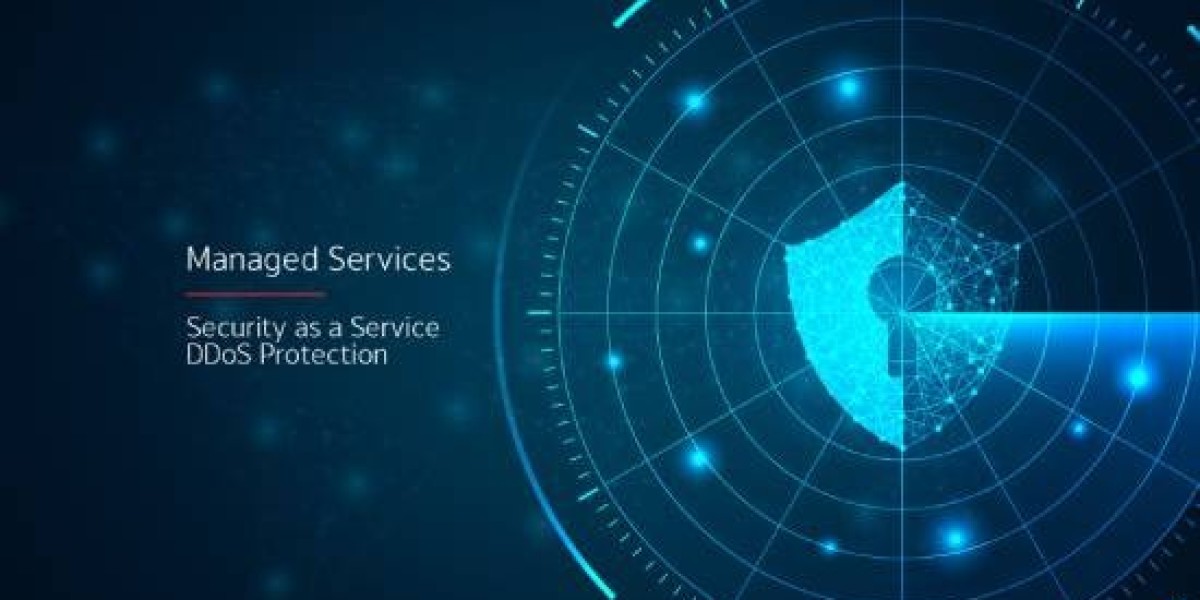Ransom DDoS (Distributed Denial of Service) attacks are an emerging threat in the cyber landscape, causing significant disruption to businesses and demanding ransom payments to halt the attacks. These attacks can cripple operations, resulting in financial losses and reputational damage. Understanding the nature of ransom DDoS attacks and implementing robust Managed DDoS Protection is crucial for safeguarding your organization against this growing menace. This article explores the dynamics of ransom DDoS attacks and the importance of Managed DDoS Protection in mitigating these threats.
Understanding Ransom DDoS Attacks
What is a Ransom DDoS Attack?
A ransom DDoS attack involves cybercriminals launching a DDoS attack against an organization’s online services and demanding a ransom to stop the attack. Unlike typical DDoS attacks aimed at causing disruption, ransom DDoS attacks have a financial motive, making them a severe threat to businesses of all sizes.
How Do Ransom DDoS Attacks Work?
Attackers typically begin by sending a ransom note to the target organization, threatening to launch a DDoS attack if the ransom is not paid. If the ransom is not met, they initiate the attack, overwhelming the target's servers with a flood of traffic and causing service outages. These attacks can last for hours or even days, severely impacting business operations.
Impact on Businesses
Ransom DDoS attacks can lead to significant financial losses due to downtime, lost revenue, and potential ransom payments. Additionally, these attacks can damage an organization's reputation, erode customer trust, and lead to legal and regulatory repercussions.
The Role of Managed DDoS Protection
What is Managed DDoS Protection?
Managed DDoS Protection involves outsourcing DDoS mitigation to specialized service providers who offer comprehensive protection against DDoS attacks. These services include continuous monitoring, detection, and mitigation of DDoS threats, ensuring minimal disruption to business operations.
Benefits of Managed DDoS Protection
Proactive Monitoring and Detection: Managed DDoS Protection services offer 24/7 monitoring to detect and respond to DDoS attacks in real time. This proactive approach ensures that threats are identified and mitigated before they cause significant damage.
Advanced Mitigation Techniques: Managed DDoS Protection providers use advanced mitigation techniques, including traffic filtering, rate limiting, and anomaly detection, to neutralize DDoS attacks effectively. These techniques ensure that legitimate traffic reaches the target while malicious traffic is blocked.
Scalability and Flexibility: Managed DDoS Protection services are scalable, allowing businesses to adjust their protection levels based on evolving threats and business needs. This flexibility ensures that organizations remain protected regardless of the size or complexity of the attack.
Expertise and Support: Partnering with Managed DDoS Protection providers gives businesses access to cybersecurity experts with extensive experience in handling DDoS attacks. These experts provide valuable insights, support, and guidance to enhance the organization’s overall security posture.
Implementing Managed DDoS Protection
Assessing Your Vulnerability
To effectively combat ransom DDoS attacks, businesses must first assess their vulnerability. This involves identifying critical assets, understanding potential attack vectors, and evaluating existing security measures. A thorough vulnerability assessment provides the foundation for implementing robust Managed DDoS Protection.
Selecting the Right Managed DDoS Protection Provider
Choosing the right provider is crucial for effective DDoS protection. Businesses should look for providers with a proven track record, comprehensive service offerings, and the ability to tailor solutions to specific needs. Key factors to consider include the provider’s mitigation capacity, response times, and the availability of support services.
Integrating Managed DDoS Protection with Existing Security Measures
Managed DDoS Protection should be integrated with existing security measures to create a cohesive defense strategy. This integration involves coordinating with other security tools, such as firewalls, intrusion detection systems, and security information and event management (SIEM) systems, to ensure comprehensive protection against DDoS attacks and other cyber threats.
Strategies for Combating Ransom DDoS Attacks
Developing a DDoS Response Plan
A well-defined DDoS response plan is essential for effectively handling ransom DDoS attacks. This plan should outline the steps to take in the event of an attack, including communication protocols, roles and responsibilities, and escalation procedures. Regular testing and updating of the response plan ensure its effectiveness during an actual attack.
Educating Employees and Stakeholders
Employee awareness and training are critical components of a robust defense against ransom DDoS attacks. Organizations should educate employees and stakeholders about the nature of DDoS attacks, the importance of cybersecurity practices, and the steps to take if they suspect an attack. This awareness helps in early detection and minimizes the impact of an attack.
Collaborating with Law Enforcement
In the event of a ransom DDoS attack, collaborating with law enforcement agencies can be beneficial. Reporting the attack to the authorities helps in tracking down the attackers and potentially recovering any ransom payments made. Law enforcement can also provide guidance and support in handling the attack.
Conclusion
Ransom DDoS attacks represent a significant threat to businesses, with the potential to cause severe financial and reputational damage. Implementing Managed DDoS Protection is a critical step in defending against these attacks. By leveraging proactive monitoring, advanced mitigation techniques, and expert support, organizations can ensure robust protection against ransom DDoS threats. Understanding the importance of Managed DDoS Protection and integrating it into a comprehensive cybersecurity strategy will help businesses safeguard their operations and maintain resilience in the face of emerging cyber threats.



